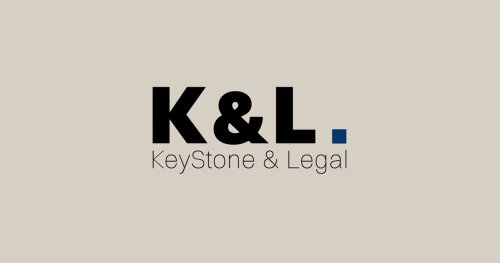Best Employer Lawyers in South Korea
Share your needs with us, get contacted by law firms.
Free. Takes 2 min.
Or refine your search by selecting a city:
List of the best lawyers in South Korea
About Employer Law in South Korea
Employer law in South Korea encompasses the legal framework governing the rights and responsibilities of employers and employees within the country. This area of law addresses various employment-related issues, including contract negotiation, employee rights, termination procedures, and workplace safety. South Korean employment law is known for its structured labor market regulations designed to protect workers' rights and ensure fair practices in the workplace.
Why You May Need a Lawyer
There are several situations where individuals or businesses might require legal assistance in employer-related matters. These can include drafting and reviewing employment contracts, handling disputes over wages or working conditions, addressing discrimination or harassment claims, navigating the complexities of collective bargaining, ensuring compliance with labor laws, and representing clients in employment litigation. A lawyer can provide expertise in understanding and applying South Korean employment laws to protect your rights and interests effectively.
Local Laws Overview
Key aspects of local laws pertinent to employers in South Korea include:
- Labor Standards Act: Provides comprehensive regulations on working hours, wages, and employment conditions. It specifies minimum employment standards that employers must adhere to.
- Employment Contract Law: Mandates that all employment relationships be formalized through written contracts, outlining specific terms of employment.
- Minimum Wage Act: Sets the legal minimum wage rate that employers must pay their employees, reviewed annually.
- Industrial Safety and Health Act: Requires employers to ensure a safe working environment and enforce preventive measures against workplace accidents and occupational diseases.
- Equal Employment Opportunity and Work-Family Balance Assistance Act: Prohibits discrimination in employment based on gender, age, or disability and promotes work-life balance through policies like parental leave.
Frequently Asked Questions
1. What is the legal minimum wage in South Korea?
The legal minimum wage in South Korea is determined annually by the Minimum Wage Council. As of 2023, it is approximately KRW 9,620 per hour. Employers must comply with this mandate.
2. Are written employment contracts mandatory?
Yes, South Korean law requires that employment relationships be formalized through written contracts, clearly outlining the rights and duties of both parties.
3. How are working hours regulated?
The standard workweek is typically 40 hours, with overtime work regulated and requiring additional compensation. The maximum number of working hours, including overtime, generally cannot exceed 52 hours per week.
4. What protections exist against wrongful termination?
The Labor Standards Act provides protections against unjust dismissal. Employers must have justifiable reasons and adhere to due process for terminating employees.
5. Can employees join labor unions?
Yes, employees in South Korea have the right to join labor unions and engage in collective bargaining and actions to protect their interests.
6. How is workplace discrimination handled?
Discrimination based on gender, age, disability, or other factors is prohibited. Victims may file complaints with relevant labor authorities or seek legal recourse.
7. What is the policy on maternity and paternity leave?
Employees are entitled to maternity and paternity leave, with specific durations and conditions specified under the Equal Employment Opportunity and Work-Family Balance Assistance Act.
8. How are employment disputes resolved?
Employment disputes can be resolved through mediation by the Ministry of Employment and Labor, arbitration, or litigation in labor courts.
9. Are health and safety standards strictly enforced?
Yes, employers must comply with the Industrial Safety and Health Act, which sets out stringent requirements for maintaining safe working conditions.
10. What are the consequences of non-compliance with employment laws?
Non-compliance can result in legal penalties, fines, and potential litigation against the employer. It is crucial for employers to stay informed and compliant with all relevant laws.
Additional Resources
For more information and assistance, consider reaching out to the following resources:
- Ministry of Employment and Labor: Offers guidance on employment laws and handles labor disputes.
- Labor Standards Office: Provides enforcement of labor laws and offers mediation services.
- Korean Bar Association: Can connect you with licensed attorneys specializing in employment law.
- Local labor unions: Can provide support and representation for workers facing employment issues.
Next Steps
If you need legal assistance in employer-related matters, consider taking the following steps:
- Conduct a preliminary assessment of your situation and gather relevant documentation.
- Seek initial consultation with a lawyer specializing in South Korean employment law.
- Evaluate legal advice and options presented to formulate a strategic approach.
- Consider meditating with your employer or employee, or, if necessary, proceed with formal legal proceedings to resolve the issue.
Taking proactive steps and consulting with experienced legal professionals can significantly improve your understanding and handling of employment-related legal matters in South Korea.
Lawzana helps you find the best lawyers and law firms in South Korea through a curated and pre-screened list of qualified legal professionals. Our platform offers rankings and detailed profiles of attorneys and law firms, allowing you to compare based on practice areas, including Employer, experience, and client feedback.
Each profile includes a description of the firm's areas of practice, client reviews, team members and partners, year of establishment, spoken languages, office locations, contact information, social media presence, and any published articles or resources. Most firms on our platform speak English and are experienced in both local and international legal matters.
Get a quote from top-rated law firms in South Korea — quickly, securely, and without unnecessary hassle.
Disclaimer:
The information provided on this page is for general informational purposes only and does not constitute legal advice. While we strive to ensure the accuracy and relevance of the content, legal information may change over time, and interpretations of the law can vary. You should always consult with a qualified legal professional for advice specific to your situation.
We disclaim all liability for actions taken or not taken based on the content of this page. If you believe any information is incorrect or outdated, please contact us, and we will review and update it where appropriate.
Browse employer law firms by city in South Korea
Refine your search by selecting a city.
















